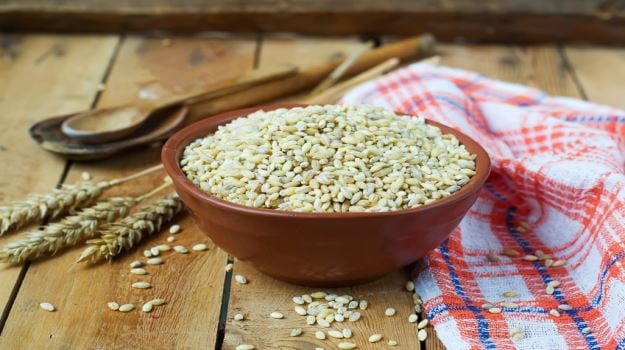Barley, the ancient grain, may not score as high compared to the popularity of other grains, but its health benefits are aplenty. It is not without reason considered to be a superfood. For years it has been used by many communities to make breads and porridge to savour the essential nutrients. A recent study done by Lund University in Sweden states that eating a special mixture of dietary fibres found in barley can help reduce appetite and blood sugar levels. According to the researchers, barley can also rapidly improve people's health by reducing risk for cardiovascular disease."It is surprising yet promising that choosing the right blend of dietary fibres can -- in a short period of time -- generate such remarkable health benefits," said Anne Nilsson from Lund University.
The study was conducted with healthy middle-aged participants who were asked to eat bread largely made out of barley kernels (up to 85 percent) for three days -- at breakfast, lunch and dinner. Approximately 11-14 hours after their final meal of the day, participants were examined for risk indicators of diabetes and cardiovascular disease.The researchers found that the participants' metabolism improved for up to 14 hours, with additional benefits such as decreases in blood sugar and insulin levels, increases in insulin sensitivity and improved appetite control. The effects arise when the special mixture of dietary fibres in barley kernel reaches the gut, stimulating the increase of good bacteria and the release of important hormones, the researchers said."After eating the bread made out of barley kernel, we saw an increase in gut hormones that regulate metabolism and appetite, and an increase in a hormone that helps reduce chronic low-grade inflammation, among the participants. In time this could help prevent the occurrence of both cardiovascular disease and diabetes," said Anne Nilsson.The ambition is also to get more people to use barley in meals, for example in salads, soups, stews, or as an alternative to rice or potatoes.Inputs from IANS.
The study was conducted with healthy middle-aged participants who were asked to eat bread largely made out of barley kernels (up to 85 percent) for three days -- at breakfast, lunch and dinner. Approximately 11-14 hours after their final meal of the day, participants were examined for risk indicators of diabetes and cardiovascular disease.The researchers found that the participants' metabolism improved for up to 14 hours, with additional benefits such as decreases in blood sugar and insulin levels, increases in insulin sensitivity and improved appetite control. The effects arise when the special mixture of dietary fibres in barley kernel reaches the gut, stimulating the increase of good bacteria and the release of important hormones, the researchers said."After eating the bread made out of barley kernel, we saw an increase in gut hormones that regulate metabolism and appetite, and an increase in a hormone that helps reduce chronic low-grade inflammation, among the participants. In time this could help prevent the occurrence of both cardiovascular disease and diabetes," said Anne Nilsson.The ambition is also to get more people to use barley in meals, for example in salads, soups, stews, or as an alternative to rice or potatoes.Inputs from IANS.
Advertisement






